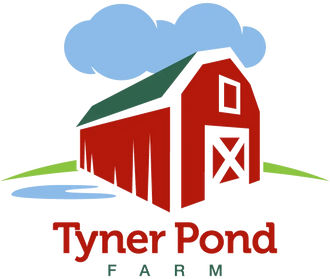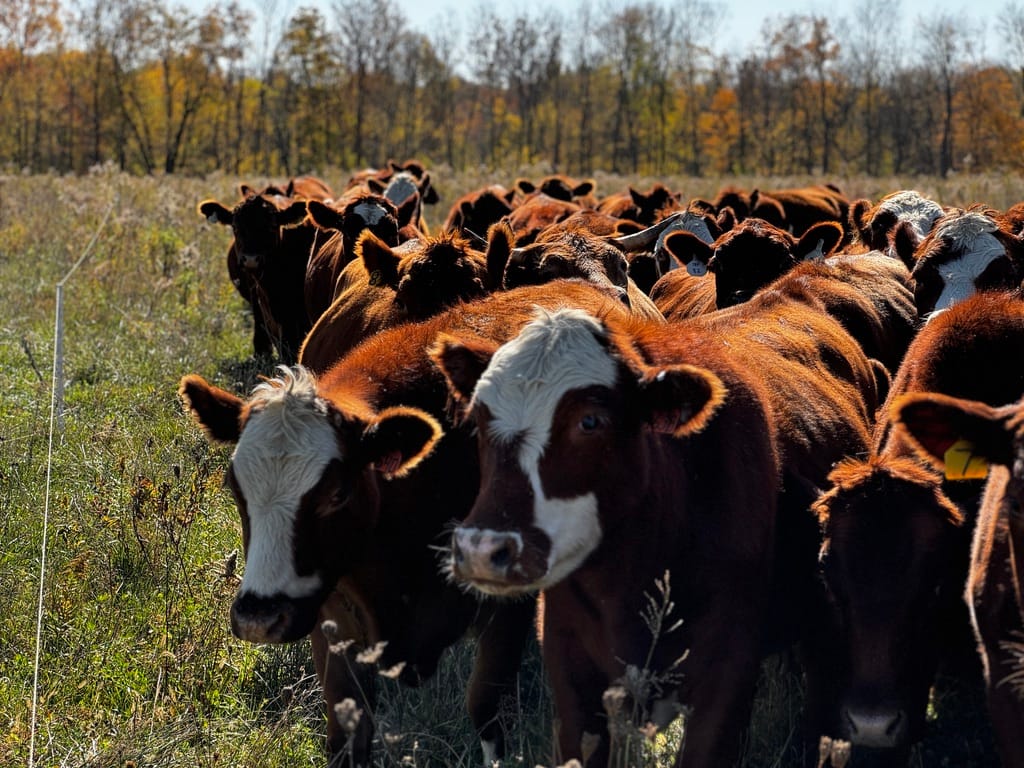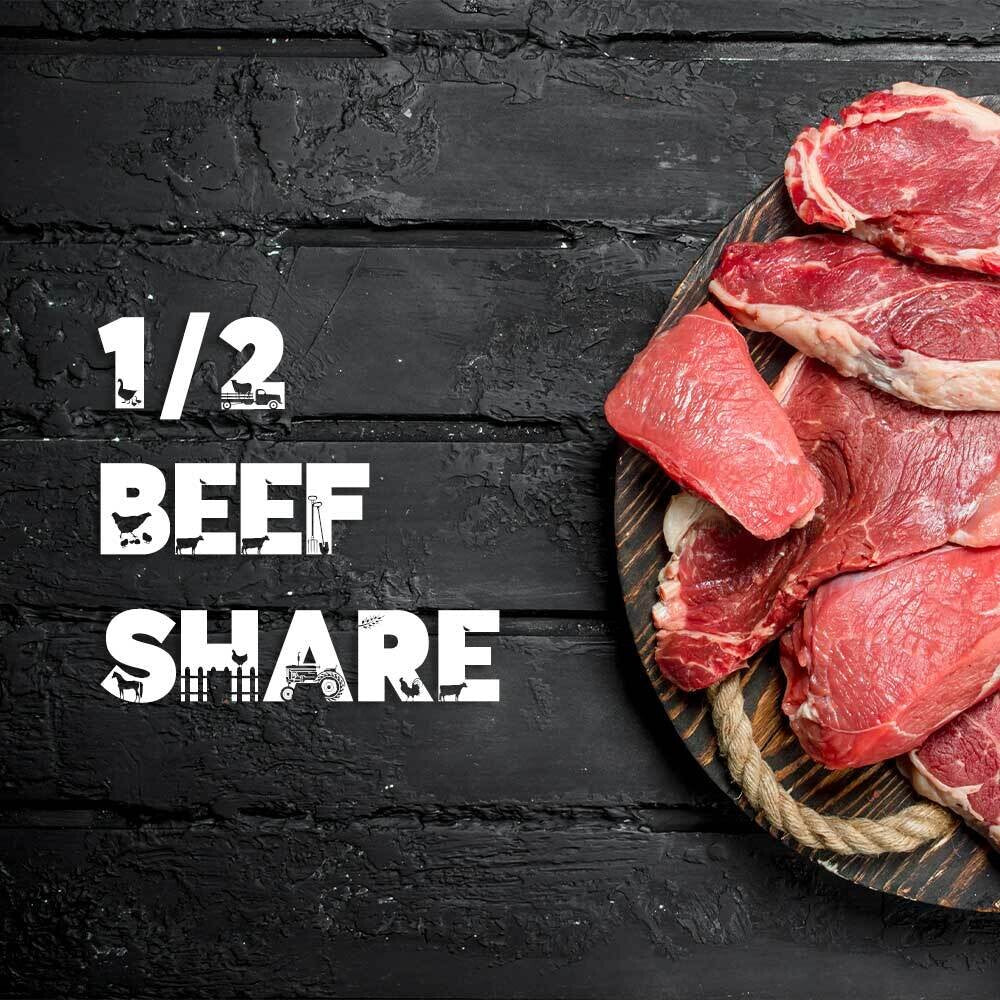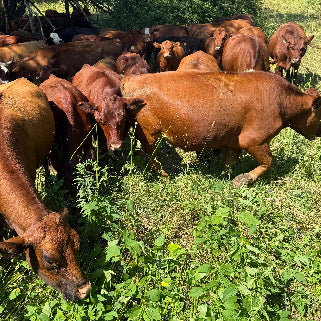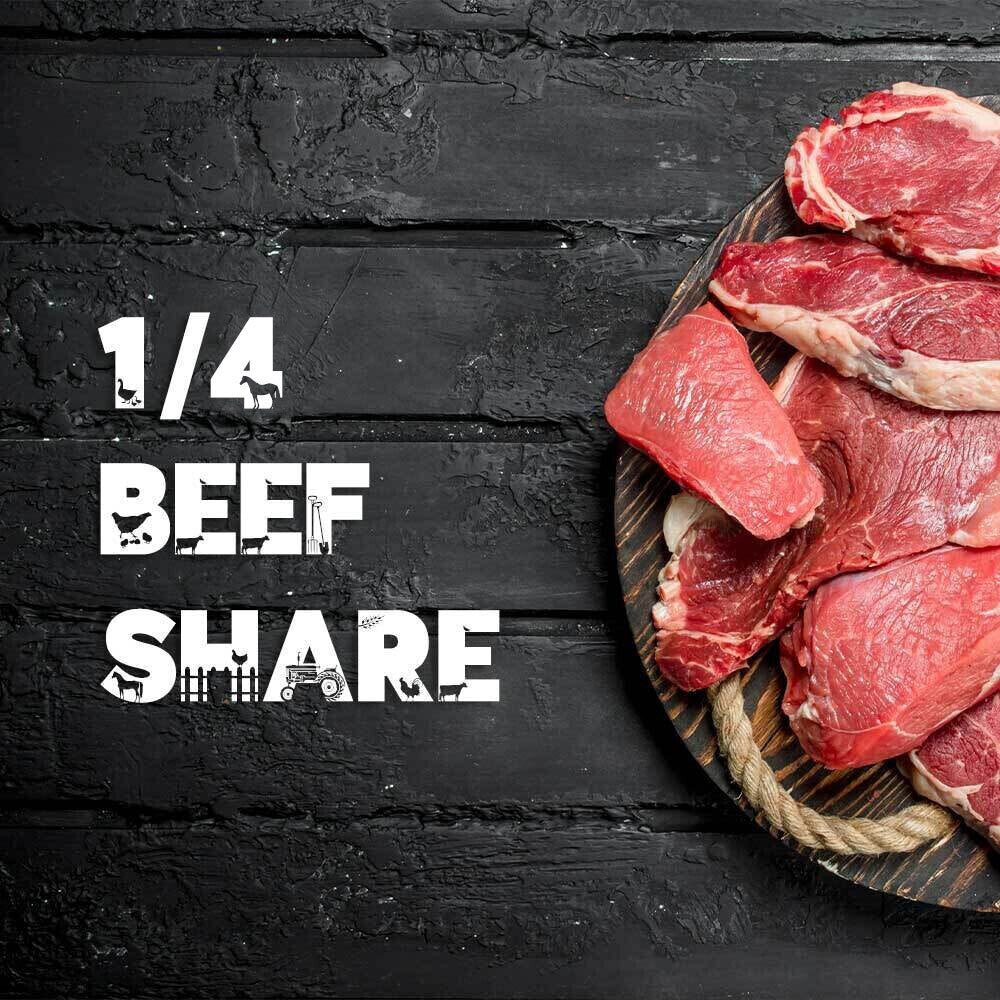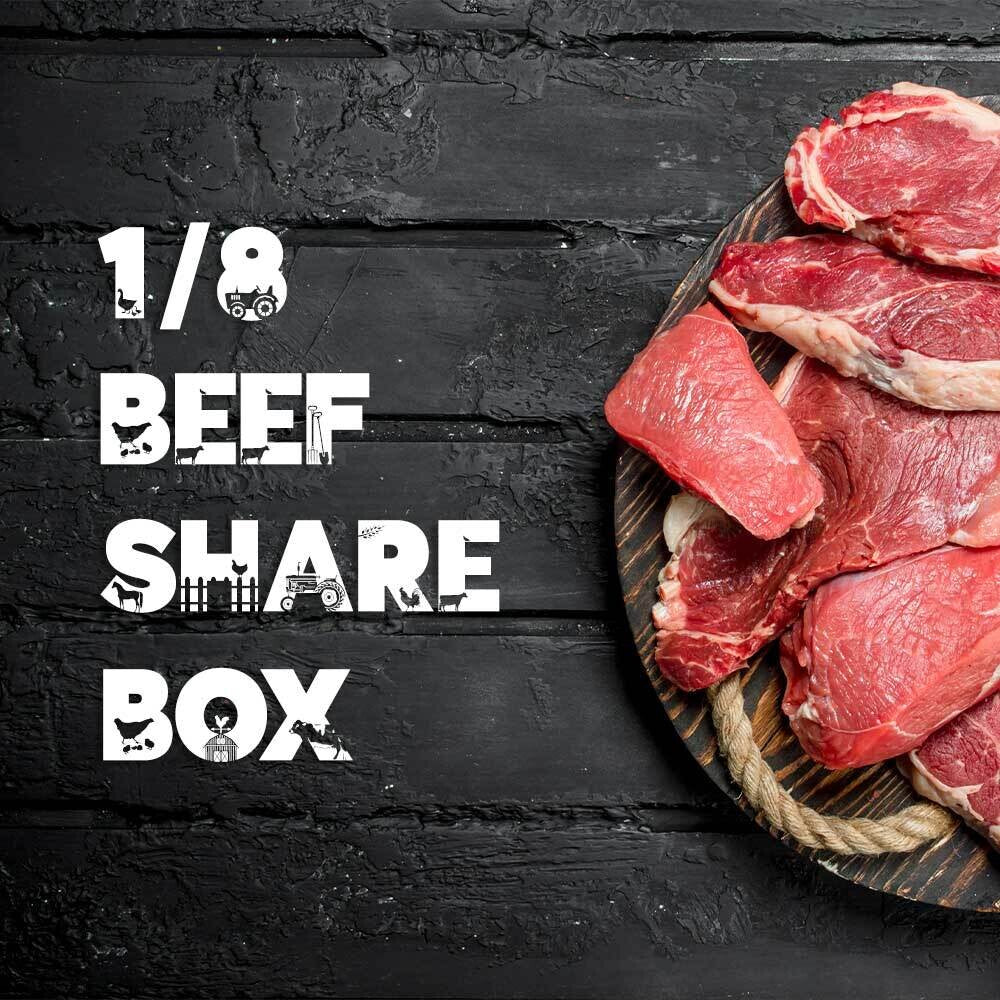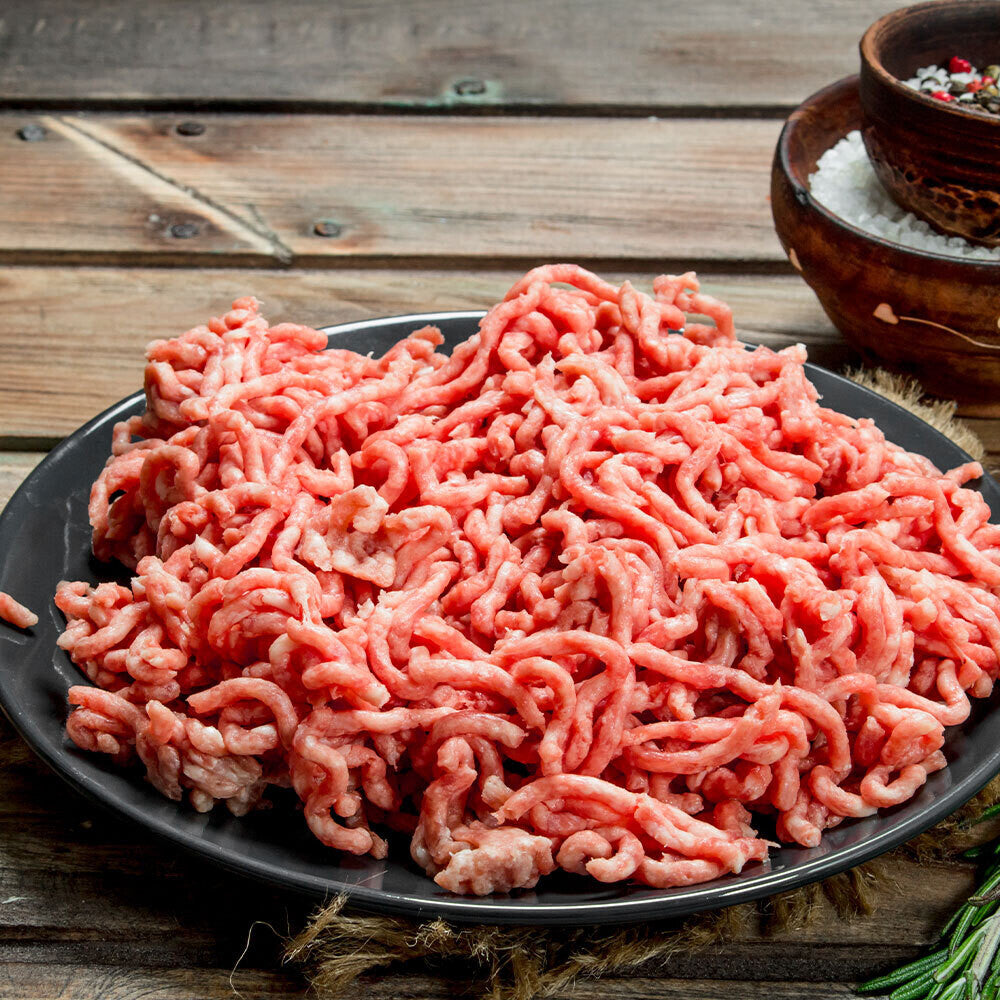
The EATS Act: Finding Common Ground Against Corporate Overreach
In today's polarized political landscape, it's actually kind of nice to find an issue where both sides can agree.
The Ending Agricultural Trade Suppression (EATS) Act has emerged as an unexpected point of unity, with shared concerns across the political spectrum. This act may indeed mark a moment where corporate food and agriculture have overstepped, prompting both progressives and conservatives to find common ground.
What is the EATS Act?
The EATS Act is proposed federal legislation designed to prevent individual states from setting their own agricultural standards if those standards differ from federal regulations or other states' laws. Specifically, it aims to strip states of the ability to impose standards or conditions on the production or manufacturing of agricultural products sold in interstate commerce. The Bill has a long way to go before it becomes law, but it's far better to get in front of it now. For more details, you can review the texts of the EATS Act through the following links: H.R. 4417: Ending Agricultural Trade Suppression Act S. 2019: Ending Agricultural Trade Suppression ActArguments Against: Typically Perceived As Progressive:
- Animal Welfare: Progressive voices argue that the EATS Act would undermine laws like California's Proposition 12, which sets higher standards for the treatment of farm animals. Proposition 12, upheld by the Supreme Court, requires more humane conditions for farm animals, such as enough space for them to move around. The EATS Act threatens to nullify these protections by allowing products from states with lower standards to be sold in California, effectively lowering the bar for animal welfare nationwide.
- Environmental Protection: Environmentalists fear that the EATS Act could nullify state-level regulations that address environmental concerns related to agricultural practices. For example, states like California have stringent rules on pesticide use and emissions from agricultural operations to protect air and water quality. The EATS Act could override these regulations, allowing practices that contribute to pollution and environmental degradation.
- Public Health and Safety: There are significant concerns that the EATS Act could jeopardize food safety regulations. State-specific standards often address local issues more effectively than federal regulations. For instance, some states have enacted laws to reduce the risk of zoonotic diseases by improving sanitation and animal handling practices on farms. The EATS Act could weaken these protections, increasing the risk of disease outbreaks and foodborne illnesses.
Arguments Against: Typically Perceived As Conservative
- States' Rights: Many conservatives oppose the EATS Act on the grounds that it infringes upon states' rights to regulate commerce within their borders. The principle of states' rights is inherently conservative, emphasizing local governance and autonomy. By preempting state laws, the EATS Act centralizes power at the federal level, which many should view as an overreach of federal authority.
- Foreign Influence: Some lawmakers worry that the EATS Act could benefit foreign-owned corporations, at the expense of American food producers. By standardizing regulations at a lower level, the act could make it easier for foreign corporations to compete in the U.S. market, potentially undermining domestic agriculture and leading to increased foreign control over American food supplies.
- Small Farmer Protection: There is concern among conservatives that the EATS Act would disproportionately benefit large agribusinesses, potentially driving small, family-owned farms out of business. Smaller farms often rely on state-specific regulations that protect them from being outcompeted by larger operations. The EATS Act could remove these protections, making it harder for small farmers to survive and thrive in an increasingly consolidated industry.
The Common Ground
While progressives and conservatives may approach the issue from different angles, their concerns converge on several key points:- Corporate Overreach: Both sides recognize that the EATS Act primarily serves the interests of large agribusinesses at the expense of smaller producers and local communities. The act is designed to centralize control over agricultural regulations, stripping states of their ability to set standards that reflect local values and needs. This move is totally written by (and for) large agribusiness corporations, which can more easily comply with uniform federal regulations. In contrast, smaller, family-owned farms rely on state-specific protections to remain competitive. By nullifying these protections, the EATS Act undermines the viability of small farms, accelerating the trend towards agricultural consolidation and monopolization. This not only threatens the economic survival of small producers but also undermines the social and environmental fabric of local communities that depend on sustainable and ethical farming practices
- States' Rights: There is a shared value in allowing states to set their own standards that reflect local values and needs.
- Public Health and Safety: Both sides express concerns about potential negative impacts on the environment, food safety and disease control.
- Protection of Small Farmers: There is mutual worry about the survival of small, independent farms in the face of corporate consolidation.
Food Security
The EATS Act poses a significant risk to food security, particularly due to the increasing foreign ownership of critical points in our food supply chain and the high percentage of food imports. Food security is foundational to our national security.As early investigative journalist and lawyer Alfred Henry Lewis observed, “There are only nine meals between mankind and anarchy.”This statement highlights the delicate nature of our food supply and the swift disruption that can occur. The meat and produce industry both have considerable foreign investment, with major meat processing companies in the U.S. having foreign ownership stakes, which can impact the control and direction of meat production and distribution.
- Beef: 40% controlled by Brazilian companies (JBS and Marfrig).
- Pork: 67% controlled by a mix of American and foreign companies, including significant shares by WH Group/Smithfield (Chinese) and JBS (Brazilian).
- Chicken: 45% controlled by Tyson (American) and Pilgrim's Pride (Brazilian-owned).
- Meat: Approximately 10-15% of meat consumed in the U.S. is imported
- Produce: Around 44% of fruits and nuts and 35% of vegetables are imported
- Organic Produce: About 70% of organic produce consumed in the U.S. is imported.
Your Call to Action
As the legislative process continues, it is crucial for you to stay informed and engaged. By reaching out to your representatives and voicing your concerns,you can help ensure that the interests of local communities, small farmers, and public health are prioritized over corporate interests.U.S. Senators from Indiana
Senator Todd Young (Republican) Email: todd_young@young.senate.gov Senator Mike Braun (Republican) Email: mike_braun@braun.senate.govU.S. Representatives from Indiana
Representative Frank Mrvan (Democrat) - District 1 Email: frank.mrvan@mail.house.gov Representative Rudy Yakym (Republican) - District 2 Email: rudy.yakym@mail.house.gov Representative Jim Banks (Republican) - District 3 Email: jim.banks@mail.house.gov Representative James Baird (Republican) - District 4 Email: james.baird@mail.house.gov Representative Victoria Spartz (Republican) - District 5 Email: victoria.spartz@mail.house.gov Representative Greg Pence (Republican) - District 6 Email: greg.pence@mail.house.gov Representative André Carson (Democrat) - District 7 Email: andre.carson@mail.house.gov Representative Larry Bucshon (Republican) - District 8 Email: larry.bucshon@mail.house.gov Representative Erin Houchin (Republican) - District 9 Email: erin.houchin@mail.house.govHere is a sample email you might use to voice your opposition to the EATS Act:
Subject: Oppose the EATS Act (S.2019/H.R.4417) in the Upcoming Farm Bill Dear [Senator/Representative] [Last Name], I hope this message finds you well. I am writing to express my strong opposition to the Ending Agricultural Trade Suppression (EATS) Act (S.2019/H.R.4417), which is currently being considered for inclusion in the upcoming Farm Bill. As a resident of Indiana and a voter, I am deeply concerned about the implications of the EATS Act for several reasons: Animal Welfare: The EATS Act threatens to undermine hard-won animal welfare standards such as California's Proposition 12, which ensures more humane treatment of farm animals. Allowing products from states with lower standards to be sold nationwide would roll back crucial protections and ignore the ethical treatment of animals. Environmental Protection: This legislation could nullify vital state-level environmental regulations. States like Indiana have specific rules to address local environmental issues, including pesticide use and emissions from agricultural operations. The EATS Act would jeopardize these protections and contribute to environmental degradation. Public Health and Safety: The act could weaken state-specific food safety standards that are designed to prevent disease outbreaks and ensure the safety of our food supply. The unique needs of each state are best addressed by localized regulations, not a one-size-fits-all federal mandate. States' Rights: The EATS Act undermines the principle of states' rights by stripping states of their ability to set their own agricultural standards. This centralization of power is an overreach of federal authority and contradicts the values of local governance and autonomy that are important to our state. Impact on Small Farmers: The act disproportionately benefits large agribusinesses at the expense of small, family-owned farms. These small farms rely on state-specific regulations to protect them from being outcompeted by larger operations. The EATS Act would erode these protections and threaten the livelihood of many hardworking farmers in our community. Both progressives and conservatives have voiced their concerns about the EATS Act, recognizing that it primarily serves the interests of large agribusinesses while neglecting the well-being of animals, the environment, public health, and small farmers. This is an issue that transcends political divides and speaks to the core of what we value in our agricultural practices and governance. I urge you to stand with your constituents and oppose the inclusion of the EATS Act in the Farm Bill. Let us work together to protect the diverse tapestry of American agriculture, uphold states' rights, and ensure the ethical treatment of animals and the safety of our food supply. Thank you for your attention to this critical matter. I look forward to your response and to seeing you take action against this harmful legislation. Sincerely, You can customize the email with any additional personal details or specific concerns you may have. Thank you for helping in this important fight.
Previous post
Building a Cooperative Community: Supporting Local Farms Together
Next post
